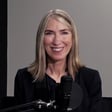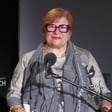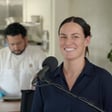Become a Creator today!Start creating today - Share your story with the world!
Start for free
00:00:00
00:00:01

Winning Ways
Coach Alan Knipe, instrumental in LBSU's three NCAA titles and numerous Final Four appearances, discusses what it takes to win.
Transcript
00:00:16
Speaker
Hello, I'm Dan Montoya, Vice President of University Relations and Development here at Cal State Long Beach. Welcome to At the Beach. This podcast shares news of Cal State Long Beach and ways you can get involved.
00:00:28
Speaker
Today, I'm so excited to introduce my guest, Coach Alan Knipe. As a player, assistant coach, and head coach, Knipe has helped beach squads make 12 of the program's 14 Final Four appearances. In 2018-19, he led the beach to the NCAA Championships, the first back-to-back national titles for the beach.
00:00:51
Speaker
Allen also coached the USA senior men's volleyball team for three years, leading Team USA to the quarterfinals at the 2012 London Olympics, among other accomplishments.
00:01:03
Speaker
I'm so excited to bring on Long Beach State's men's volleyball coach, Allen Knipe. Welcome, Allen. Awesome, Dan. Thanks for having me. So we'll go through a ah ah couple lists of questions here, and we'll start with the first one.
00:01:19
Speaker
So let's talk about your legacy at the beach. Allen, you've been a part of Long Beach volleyball as a player, assistant coach, and head coach, contributing to all three national championships, 1991, 2018, 2019.
00:01:32
Speaker
two thousand and eighteen two thousand and nineteen What does it mean to you to have such a deep connection to this program? Yeah, it means everything to me, you know, um when When I got here as a player, it was a significantly different time and space, obviously. We're talking about no pyramid at that time. They were breaking ground, I think, my senior year.
00:01:55
Speaker
um And I was very fortunate to play on a very, very good team. we We went to a finals and lost. We went to a finals and won. And it was kind of a a little bit of an outlier at that time for men's volleyball where there were these years that we were good and years that we weren't so good.
00:02:14
Speaker
And the experience that I went through and the feelings that I had about playing in the finals and playing in a playing for a national championship, as I left and then I started to get into coaching and then ended up back here, the thought was this is not something that was just unique to my team. This this can be doable on a yearly basis. We we can do this. We can be a mid-major, yes, as a as a university,
00:02:40
Speaker
But we don't have to act like that as our program. And we can go after these teams and we can win the Southern California market for recruits and now international. But most importantly, i wanted on a regular basis the players that played for me to have the opportunity to feel what I felt like that night in Hawaii in 1991. Wow.
00:03:00
Speaker
Tell me a ah little bit more about that night. ah you know what what yeah If you can go back and remember some of the feelings and emotions and in just just what were you thinking at that time? Yeah, it's ah it's a special night. you know i just don't i don't think that...
00:03:16
Speaker
in in a lot of ways i don't think the university of the athletic firm was even prepared that we we could do it you know and i don't mean that bad it didn't know so much transition going on at that time and the team got good pretty quick and then all of a sudden we went from in nineteen eighty nine the team didn't qualify for the conference tournament in nineteen ninety we we're playing in the final fours ranked number one in the country and in nineteen ninety one we want it so it all happens it kinda so fast but in hawaii It was special. You know, you you have this this wonderful moment in time, and I always explain to people, it's it's the 20 minutes after the championship that you'll never forget.
00:03:55
Speaker
Right. You'll forget parts of the game, and you'll forget what happened later on that night, that week, and all the press and all that stuff. Yeah. But you'll never forget that 20 minutes of euphoria that happens with the guys you battled with for a national championship. And that's what sticks with me the most. Wow.
00:04:09
Speaker
So I've seen a lot of champions, you know, after a Super Bowl or ah NBA finals or whatever. And then all of a sudden when they're done, it just seems like they just break out in tears or emotion. Yeah.
00:04:25
Speaker
Like, what's that what's that about? Because, I mean, you've you've experienced it. um You've experienced it with your team as well. Yeah. What is it that that moment captures? In other words, like you worked so hard to get to this moment and you finally did it.
00:04:40
Speaker
Well, I think that that when the reality kicks in and that at that time, I think you realized, OK, you finally got there. um All the work is done for the others. It doesn't matter which wayever however it went, it's over. Right.
00:04:54
Speaker
So there's the finality to it. And then the other one is is that when you realize, when it really, the the dime drops that you pulled off what you were set out to accomplish, you realize you're the only team that won the last game of the season. yeah And you'll always be the only team that won the last game of that season. yeah So I think you realize at that point it was something special. And then you get fairly nostalgic on the fact that this is a special group of people you probably did it with.
00:05:20
Speaker
And then for in nightwa if you're referring to 1991, then it it went a step further because that was the first national championship in men's sports history at Long Beach. So then it starts to get people started throwing stats out like that and it starts to mean even more.
00:05:33
Speaker
So bringing your winning magic, you know, building powerhouse under your leadership since 2001, the team has made. nine NCAA final four appearances. That is not easy to do.
00:05:47
Speaker
What's the secret to consistently building a national competitive program year after year after year here at the beach? Yeah, it's, um, it's a lot of very, very intentional work. Uh,
00:06:02
Speaker
when you When you're able to do it and get to a finals and win or get to a finals and just play in the final four, or you can do it every you know five, six, seven years, something like that. It's still very, very special.
00:06:14
Speaker
But it was also something, it meant a lot to me that we were able to change the whole outlook of men's volleyball here to do it on an annual basis, to be in the hunt on an annual basis. And that's, you know, as my dad was a coach as well, he would ah he would say all the time, regardless of what was going on, and um if we had lost, say we lost in the finals or whatever, or in even in the final four, he would say, hey, man, you can't win it if you're not in it. Just keep being in it a lot and you'll get your share. Right.
00:06:41
Speaker
And um so I really believe that from the very beginning. how ah How much can we just be in striking distance of the final four on an annual basis? Yeah. But that means that there's lots of different players we've had and coaches we've had over the years be part of this, administrators, donors, all community members, all sorts of different presidents over the time I've been here.
00:07:00
Speaker
um But the deal was very, very intentional with very – a very high level of um intentness on the culture that we were building from the, you know, from the very, very beginning communication, accountability, trust, be building our culture with our alumni base, with the community itself, how we are representing ourself in the classroom. Very proud of all the student athletes we have that ah our APR rates so high, our graduation rates, our
00:07:31
Speaker
um academic all-stars we had 21 of them on our team last year like do completely expecting greatness from from from every area and then the other one is when you work at a yeah at a mid-major school it's it's not the you know the coffers aren't just stuffed with money so you go through these highs and lows at different times and having to the mindset that you have to be solution-based your own, not just um you know waiting for the athletic director sometimes to do it for you and yeah or even the university.
00:08:04
Speaker
And i think that's maybe the, if there is any magic to it, it's all the army of people over the last 25 years that have been behind the scenes funding this program in small maybe donations and sometimes large donations, but consistent donations that allowed us to grow.
00:08:21
Speaker
Yeah, I really appreciate the culture. And even when you see your players around campus or or even talk to them, they're so approachable, humble and willing to give you the time, you know, and that's that's not always the case in many sports. So I think that's that's really well, I appreciate that. It means a lot to hear that.
00:08:41
Speaker
Yeah, so coaching influences. You mentioned your father was a coach and you mentioned the likes of Mike D'Alessandro, Ray Rattel, and Doug Beal shaping your coaching journey.
00:08:56
Speaker
How have your lessons influenced the culture you've created with your men's team? Yeah, I think that even that group you just put together are so very, very different because my dad was a soccer coach who came here from Northern Ireland in the 60s. So his his influence on volleyball was from the coaching and and culture and team building and discipline side. It definitely wasn't tactics of volleyball.
00:09:19
Speaker
But, you know, to Ray Rattel, who was the head coach for 20 years before I was my head coach when I played here, um you know, the takeaways from Ray was the – Ray's approach to running our program was significantly different. I am as a coach, but I learned a lot from him as he wasn't a coach within the athletic department of how we went about the business of of men's volleyball, meaning he approached it as a like a business as a CEO, as um we had a time to be in the office. We had a time when we were supposed to leave the office. We had. our expense reports, our phone logs. like He ran it, what he came from, the business world, yeah and that's how he ran things. And to be honest with you, as a young head coach, that was probably more valuable for me than I ever thought in the moment when I thought he was just, hey, who cares about this? Let's get after volleyball right now.
00:10:09
Speaker
So he helped me in that way. Doug Beal, who was my boss when I coached USA Volleyball, he he was the president of USA Volleyball, was a three-time Olympic coach himself. wow So as far as volleyball knowledge, there's nothing...
00:10:21
Speaker
Yeah.
00:10:27
Speaker
given me that nugget while i was coaching but his tree of coaches and his influence of volleyball has affected me in so many different ways that he's probably the biggest influence on my game But the technical part of coaching volleyball and the Long Beach State pride and love for it comes from Mike D'Alessandro, who played here also. yeah And then he came back as a coach.
00:10:49
Speaker
And he was kind of the the trainer of our team in the 90s. And he was the guy that got in the trenches with us and forced us to go hard. and The way I would explain it to most people, if Ray was the CEO, the head coach of the team, then Mike was either the offensive or defensive coordinator of a football team. yeah And and he he made it go in the gym every day for us. And he got us to believe that we could beat any team, any time, in any place. And then proved to be right.
00:11:14
Speaker
So um you you brought up a ah point that's very valuable. Yeah. Because people think, you know, volleyball players, I mean, how much physicality do you really need as far as the strength and conditioning?
00:11:30
Speaker
Tell us a little bit about that because I'm sure you guys work really hard in the gym. Yeah, I would think the closest sport to men's volleyball in training is football, to be honest with you. Because it's um if you think about the game of volleyball, you you play for about 8 to 10 seconds and you stop and you huddle up.
00:11:45
Speaker
Yeah. Just like football, you reset, you go into different offenses and defenses. um It's a very explosive sport, yeah right? Max jumping, guys jumping close to 40 inches, um arm swings, getting on the ball, hitting it 80 miles an hour.
00:12:01
Speaker
And so there's a lot of physicality, and that's changed greatly over the years. And with the way our guys lift is all Olympic platform type lifting. So it's j you watch our guys lift. ah You could walk into a football team and see them doing most of the same lifts. Right. So it's a very until people come and watch it in person and the closest you the closer you can get to the court.
00:12:24
Speaker
the more you start to really appreciate. These guys are 6'8", flying around the court, hitting the ball 80 miles an hour at each other. It's a pretty ah pretty physical game. Yeah, they're like giants. I thought the basketball team was tall.
00:12:36
Speaker
The volleyball team players were just as big. Absolutely. It's amazing. Okay, so memorable seasons, the back-to-back NCAA titles in 2018 2019 were historic for the program. Can you take us back to those moments what stands out most about your teams during that time and those championship runs?
00:12:57
Speaker
Yeah. I think that, like I said earlier, I think the 1991 one will always stand out because it was a first on its own. Right. yeah And then in 18, we had been close a whole bunch of times and actually in, in 16 and 17 lost in the final four. Yeah.
00:13:13
Speaker
So kind of getting over that hump in 18 and getting back to the point of winning the national championship was big. And, You know, UCLA volleyball is has been the standard of volleyball in Southern California for a long time. And with their 20-something national championships, and Skates is maybe the greatest college coach of all time in any sport with his 19 national championships when he was there.
00:13:38
Speaker
ah But 10 of those championships were won at Poly Pavilion. And I know that it was a special win for for us to to win at Poly. ah They happened to host the Final Four that year. It created a great atmosphere because obviously we were a very talented team and had a big following down here.
00:13:56
Speaker
But all those people traveled UCLA. So there was a massive you know black and gold section at Poly, which I loved. um So winning that was big and we were plus we we had to show some great even though we are the number one team in the country we were down two sets to one and had to come back and win in five.
00:14:13
Speaker
um But I think one thing on that that will always stick out I got an email after we won that championship from um from Ed Ratliff and Ed Ratliff if the listeners don't know Ed Ratliff maybe maybe the greatest of all time is athletes that play at long beach state and his heyday of taking us to regional finals and unfortunately at that time when ed was playing you had to truly win the the region to get to the final four in basketball and that that was during the 10 in a row run of wooden and uh they got to the regional final and lost in a couple of close ones with ed but he was phenomenal and but um unfortunately ah few of his seasons ended at poly and so he sent me uh an incredible email and uh
00:14:56
Speaker
The gist of it basically was i waited a long time to see Black and Gold Storm Pauly Pavilion. That's awesome. That meant a lot because you know he's a basketball guy. He's, maybe like I said, maybe our greatest alum and certainly had an unbelievable history himself. and to care that much about our sport and me, and I really appreciated that. so That one was special.
00:15:15
Speaker
I think the other two that stick out is that the obviously the 19 year had a completely different feel to it because we went from trying to get our title to defending our title.
00:15:26
Speaker
So you had everybody's arrows you know pointed at your back. right And everything that went right for us in 18 did not go right for us in 19. We stayed incredibly healthy in 18, really didn't deal with any issues.
00:15:40
Speaker
We had a little bit in the finals, but not really all season long, whereas in 19, we couldn't stay healthy. We couldn't get our starters all on the court together. We had times that, you know strep throat going through the team, too. You name it. There was nothing good that was happening in health-wise.
00:15:54
Speaker
But um we were trying to defend our title, and i think what also makes it special is that when we got When we won in 19, we won in the pyramid. And most NCAA sports are played at a neutral site.
00:16:08
Speaker
So there's not a lot of our sports here at Long Beach State that could ever do what we just did, and that is win on their own campus. And, you know, what the dirtbags have to do it in Omaha, and women's volleyball and men's basketball are neutral. So my point was what that gave to the Long Beach community and our season ticket holders that may not have traveled across the country or to the Midwest or wherever the finals would have been. yeah To sit in their normal seat in the pyramid and and win a national championship, I think that one will always go down as a special moment for our team, yes, but probably a special memory for a lot of our fans. And then last year was equally, you know, is impressive to me. We hosted again. We got all – know, people think, you know, you host, you're just going to play in it. Remember, we hosted and we knew we were going to host, but you still have to do all the work during the season to not throw the party and not, you know, not attend. Yeah.
00:16:56
Speaker
So we we got to the finals in a very dramatic way, being down zero two to Grand Canyon, having to come back and win in five and get to the finals. um And then that one was special because that grouped to me for two reasons. One, that group was my COVID group. They went through what everybody went through, but we went through our own journeys through COVID as as a group, and i I'll always love those guys for them sticking out what they had to stick out with us.
00:17:21
Speaker
Yeah. And then um the special thing for my family is that as a head coach, my my son was a starting All-American setter on that team. So for our family, it was a pretty special moment too. That's awesome. So let's talk about family. And I think i think you you view your team as a family. And so and when you do player development, you coached six national players of the year.
00:17:45
Speaker
And now you've got Monty Nikolov, the freshman star setter. whom so who some say has changed the way volleyball is played. What's your approach to identifying and nurturing talent to reach the elite level? And and you recruit all over the world. Yeah.
00:18:03
Speaker
Yeah, i was in Europe in December, and each game that I went to watch, it was it was surprising how it kind of got out that I was over there, and all the agents and and co and club owners that I bumped into randomly, not so randomly, um, to, to talk to us about how, you know, one, to get our players to come to Europe and also young talent in Europe that they are telling me that should be coming to play at long beach because of, uh,
00:18:30
Speaker
The notoriety we have in in Europe is pretty special right now. That's obviously the power of social media. yeah But when it comes to those players, you know they're also very different. because Not only are they from different eras, but they're also different positions. so you can't really compare a setter to a middle or an outside. But for me...
00:18:49
Speaker
I think that the mistake that is made with your very talented elite athletes is that you they don't want coaching. you know that you kind of Unfortunately, sometimes the best players on your team, you kind of and this happens at ah lots of levels, they're they're so talented and they do so things so well, you end up finding yourself spending more time with the guys that are not at their level, which means these guys don't get the training. Or for some coaches, maybe they don't want to hold that guy accountable because he's their star.
00:19:20
Speaker
But for me, I've always felt like these guys are special and they they want to get better. yeah And for me to be able to coach them, then I better be able to develop a lot of a lot of trust and a lot it with a lot of connections and and develop that over time that they they trust that my intentions are.
00:19:40
Speaker
are not just for Long Beach State to win at all costs. My intentions are for them to fly and flourish at the next level. yeah And I think that that's really been evident with, especially lately, right, with TJ DeFalco and his Olympic runs and what he did here and then Alex Nikolov and now Moni Nikolov. I think people are starting to see that.
00:19:59
Speaker
it We don't have to do one without the other. and But it all starts with them believing in you, that you have their best interests in mind. And when you when they believe that, then you can push them in the gym and you don't have to back off on them just because they're your best player. You can actually push them.
00:20:17
Speaker
Like anyone else, if not more. And it while you do that with your best player and you showcase that to your other players, it it creates even more trust with the other players that he's not getting a pass because he's the best player on your team. Yeah, that makes sense.
00:20:32
Speaker
And the other thing, too, is when you when you look at these. the players, a lot of people don't forget that they're 18 to 25 year olds, right? And they're, they are, you know, probably physically at the prime peak of their performance, but mentally yeah they're not there yet. And so for you to help them see that vision, that's, that's take some work. and takes Yeah. They won't be at their peak when it comes to their maturity until well after they're done here. You know, they'll finish here at 22 and they'll be at their peak somewhere between 24 and 26. Yeah.
00:21:06
Speaker
So I know when I get them, they're not going to be even at their best by the time they're done. But that's that's the time that I have them, so I have to worry about that. And that's that's pretty crazy to think that Nikolov Mone hasn't even got there yet. yeah That's pretty scary. in in In reality, I don't think he's even close to where wow he's going to be. and And I don't mean that in any disrespect because I think he's a tremendous talent. He's having a great year. and He's playing really well. But I think the upside for him is...
00:21:33
Speaker
The only other way to describe him is I remember being a kid and watching the Lakers when I was in junior high and it was right at that Showtime era, the beginning of the Showtime era. And I was listening to an interview with Michael Cooper and Michael Cooper was talking about the impact Magic Johnson had on the Lakers when he got there.
00:21:51
Speaker
And, uh, His size, obviously, here's a 6'9 point guard, but obviously he could he could pass and no-look passes and all this. And Cooper's comment was simply, if you weren't dialed in all the time, you got the ball in your ear, you know, because it's not ready to pay attention. So we have a term called expecting greatness, and that is and that's what Cooper was talking about, right? Expecting greatness out of magic to be ready at all times. Yeah.
00:22:13
Speaker
Moni's size, the way he approaches setting, is a mismatch like Magic was as a point guard. But there's an adjustment to his teammates of always being ready and not getting caught up in watching him do something.
00:22:25
Speaker
um But that's just an example of you know the things he's getting better at and his teammates getting better around him. But as he continues to develop more and more technically, Because but like the the volleyball IQ is off the chart.
00:22:37
Speaker
Yeah. But he's, a you know, he's he's young. He's lanky. He's going to get more control of his body. He's going to get more technically sound. He's going the margins are going to get thinner the the longer he plays. But, um yeah, it's it's probably the best way to say it's probably scary where he could probably be in four to six years. Yeah, I believe that. So let's talk about the home court advantage. How does playing on your own home court with that incredible fan support impact the team's performance at high-stakes matches? I know that the players feed off the students, and it's it's fun to watch.
00:23:11
Speaker
Yeah, no, it's – having Having a unique home court advantage is is a big part of the success, right? Because the atmosphere um that it generates attracts, ah whether it be TV or recruits, right? And fans alike. But the uniqueness of the pyramid...
00:23:30
Speaker
Wasn't always like that. It's it's it's really been since ah probably about 2018, really, when we can when the athletic department then got the TeraFlex floor, and that's the Olympic floor. So now you walk into the pyramid and it doesn't look like you're watching a basketball game with lines on the volleyball court. You actually feel like you're in a volleyball arena. And then...
00:23:56
Speaker
What that does also for the recovery of the athletes landing on that cushion floor. And you notice they're significantly better defensively on that floor because it doesn't hurt at all. yeah So they're flying around diving all over that court.
00:24:08
Speaker
So the look looks better. And then we added, you know, there's the the sand pit of the students, which our students, especially at over the last 10 years or so, have been amazing of coming out to the games.
00:24:19
Speaker
And then the sandbar on the other side, which is a great area, especially at the men's volleyball games for the former players and and donors and special guests that we bring out. The whole thing has created a buzz that if you want to go watch volleyball, the pyramid's the best place in America to go watch it.
00:24:35
Speaker
um That's a big deal. But the energy in the building, the uniqueness of the the ceiling, the uniqueness of the lights in the four corners, which can cause a problem if you're not used to it. And those are great. You know, to me, it's great um because there's plenty of places we've played in over the years that are unique and they're difficult, whether you're at Elevation at Provo or Stan Sheriff at Hawaii, just because it's it's the only thing they have out there. So everybody supports it.
00:25:01
Speaker
um We didn't always have that. We kind of used to fall in when when we had the gold mine, we fell into, we just have the cookie cutter gym that everybody has, and it was just generic. Right. So having something special is a big deal, and having it to the point that the NCAA wants to give it to Long Beach State for two reasons. One, because of the venue, and two, because the amazing people we've had that actually run the championship, because people think the NCAA roll in and do all the work, but it's actually the university does all the work. Right.
00:25:27
Speaker
um they want to keep coming back to that. Well, that's a big thing, too, they have to be able to host the Final Four for our recruits, for our athletes, and for our fans. That's awesome. um So going a little in a different direction about challenges and resilience, I mean, you you've coached through tough matches, seasons, and difficult NCAA tournaments.
00:25:48
Speaker
How do you keep the team motivated and focused during these adverse times? I mean, obviously, last year you were so close. Yep. But there's other other games that are just so close. and it's ah From a fast perspective, we're like, wow, you know they they they could have won that. But sometimes it's just either not your night or or something just goes funky. and yeah Well, sometimes it's talent. you know Sometimes the other team has a better night. Sometimes you're not playing well. Sometimes there's things...
00:26:18
Speaker
that you self-inflict. And I think the one, and I look, like I said earlier, like as my dad said, you know, if you're not in it, you can't win it. And I i do believe that. So you're not always going to win it if you're, if you're in it. And we didn't win it last year. UCLA actually won it. We didn't lose it. UCLA won that match. And so credit to them, but,
00:26:36
Speaker
We all that where the self-infliction would come that if you could go back and fix something is you don't want to be down. Oh, two in the semis and have to invest that type of energy and that emotion. Plus, we had some guys that were dealing with some things physically at that time of the year that you don't need that. If if if you like we needed it because we had to do at that point was the only way we could get to the finals.
00:26:58
Speaker
But if you can avoid that, obviously, you would like to avoid it. And I think there was so much emotion and energy and effort spent on that rally just to get back. I think that that had a little bit of effect on our legs as that match went on late in that UCLA match. But like I said at beginning, I don't want to turn it into excuses because I've always believed UCLA won that match. We didn't lose it.
00:27:18
Speaker
But when it comes to just like the the overall sustainability of the program and um It's really, where and the word are we're a system-based, routine-based program, meaning we don't we we try to stay away from the highs and lows. where In other words, if we win a good match, the guys would be a better person to ask about this. but I certainly don't come skipping down the steps of the pyramid and, you know, and I'm just the greatest, nicest person on time and they can feel like ah I'm just so happy we won.
00:27:51
Speaker
At the same time, if we lose a match, I'm not coming down looking for someone's head, you know, that type of practice either. Like we're going to be consistent and we're going to own our weeks and we, we build our weeks because a lot of our season is a Friday and Saturday back-to-back game on the weekend.
00:28:06
Speaker
Yeah. So because of that, I've built our program very much like a football program. where on We have a Monday that's a certain way, Tuesday, a Wednesday, a Thursday, and they know what's coming. yeah and And we're prepared for it. They're prepared for it physically and mentally. And I think that the goal is...
00:28:23
Speaker
Throughout the season, the goal is to find ways to consistently get better, even if you lost a match. I think you can win and still have a lesson learned from the match and get better. You don't have to lose, even though losing forces the athlete to kind of check themselves within. the coaching staff all of a sudden snaps in of what maybe some things they should have been tighter on. Yeah, yeah.
00:28:43
Speaker
And I push my staff and I push our players that we don't need to lose to find those things that need to get better. So we need to get one or two percent better every week. And then the the the last thing and probably the most important piece of this is that we have three major respects that we we approach every week with.
00:28:59
Speaker
And we approach every game with and that is we respect our opponent. So we don't plan on playing super high for one opponent and definitely don't downplay an opponent. Maybe he doesn't have the best record. We approach we really respect the game of volleyball and the way we present ourselves and how fortunate we are to play this game and represent this university. and the The way we go about our business, traveling and school, you name it.
00:29:23
Speaker
um And then most importantly, probably would be, well, not most importantly, but the last one would be the logo. And what the logo means to us is we play with grit and we play to a standard of excellence that this program plays to and and nothing else matters.
00:29:38
Speaker
That's awesome. i think I think it's great for people to hear that because sometimes, I i don't know, they they don't always realize what motivates a team, right? But I think those are great principles to to live by. So um let's talk about growing the sport. So you talked about the growth of boys, men's volleyball.
00:29:56
Speaker
How do you see Long Beach State contributing to that growth on and off the court? I mean, you you have such a huge following. yeah Talk to us about that. Well, I think that um especially as you say, the following is is primarily social media these days, right? But I think that they touch so many young athletes with ah all the reels and the highlights. But I think it goes so much further than that because there's so many players that have played here and coaches that have coached here that are currently coaching other places or running a club or coaching kids and invested into volleyball is that the Long Beach State touch on volleyball everywhere, all the way across the country.
00:30:37
Speaker
But I think that – I think it, Long beach State making volleyball um a priority, it allows young men and women, you know, like our women's program has been historically at the top of the volleyball world and had some of the the best volleyball players that have ever played women's volleyball at international level or collegiate level have wore the black and gold. So,
00:31:03
Speaker
um We've had plenty of people coming through this building since the Pyramid Open watching volleyball at the very, very highest level. And I think that it's it's given lots of boys and girls the opportunity to say, i could do that. yeah you know and The other one is, is that because we are willing to do things outside the normal scope of just ah a volleyball game, we host the NCAA tournament.
00:31:27
Speaker
We've hosted the Big West Championships. And then when I was coaching the Olympic team, before we were the Olympic team, you're the national team. You're not the Olympic team until you qualify. Right. And i don't think a lot of people, i don't think a lot of fans out there understand that team sports also have to qualify. I think they get that there's the the track relays or the swimming trials and they watch Michael Phelps have to win a heat to get in. yeah But how does a team sport get in? and The American fans, for the most part, don't really understand that. yeah that there is a qualification and you have to win your zone.
00:31:56
Speaker
At least back then. There's a little bit different in the qualification now, but in when I was coaching, you have to win your zone. Well, in 2012, in May of 2012, we hosted what was called the Norseco Championships, which is the North America zone.
00:32:08
Speaker
And it had Cuba, who was ranked fourth in the world, and Canada was ranked 12th, I think, at that time, and us, were five. Only one team was going to come out of that. And the the tournament was supposed to be in Puerto Rico, and typical volleyball.
00:32:21
Speaker
There was a Jennifer Lopez concert that they signed instead of the the volleyball tournament, so the tournament became available, and it was supposed to go to Mexico. And I had convinced Doug Beal that we should do it at Long Beach. And with the help of the university, because it all came down in the last minute, we got the pyramid. We also needed the other facilities for practice facilities, and we needed a whole bunch of money, which that part the university wasn't going to help with, which is okay.
00:32:46
Speaker
But Bruce McRae and UPS did, and we all of a sudden pulled it off, and we hosted – the Olympic qualifier nor sake a tournament at the pyramid, won that tournament and punched our ticket to the Olympic games in London from the pyramid. But my point was, is that another example of Long Beach State volleyball bringing volleyball opportunities to the the community. So you had kids now in there watching the USA team qualify for the Olympic games. And I got to believe that there was a huge benefit for growth of volleyball in this area coming off of that one match.
00:33:21
Speaker
So, you know i think a lot of us fans here in the States maybe don't understand how dynamic volleyball is globally.
00:33:33
Speaker
i I mean, there's so much talent around the globe. And how is volleyball view viewed internationally versus the United States? Because i think we probably don't understand that.
00:33:46
Speaker
Yeah, not at all. um The highest levels of volleyball, whether you're looking at the Polish league, the Italian league, there's there's great leagues um you know in Russia. you know Obviously, it's a very tough time, but historically, Russia has been some of the great great leagues paying lots of money to the players. Yeah.
00:34:07
Speaker
um Yeah, it's you're talking about NBA-sized arenas full and live on TV and huge crowds, and what you see in the and NBA every day is what the world sees in the highest pro leagues.
00:34:22
Speaker
And it's unique here because... That's not necessarily the case for lots of reasons. It's not the case. And our best players have to go live in Europe most of the year.
00:34:35
Speaker
And then they come back here and play on the U.S. team in the summer to represent our country. But they live for eight months a year in wherever it might be, whether it's in France or whether it's in Italy or whether it's in Germany or all over Europe. There's pro leagues everywhere. You know, that the team, our team last year, we have...
00:34:51
Speaker
Simon Torey is in Germany and Mason Briggs is in France. Aiden's in ah Switzerland. Clark Godbold is in Spain. Nathan Harlow was in Portugal. And Eric Beebe was in Germany as well.
00:35:02
Speaker
of the All over the globe playing volleyball. So I don't think we get it, and it's mainly because of the the big three sports we have here dominate the market. I was always at the assumption that, this is great. ESPN is going to add one, yeah ESPN two, three, four, five, all the way down. It's going to mean more sports, but really it's just – NFL this or NFL classics or NFL's greatest hits or, but, and I get that it's all fine, but they're um the market globally to watch men's volleyball is pretty special.
00:35:30
Speaker
Yeah, i so I think so. And I don't know if it we can equate it to soccer because soccer is so international too, right? it's i mean You can compare it to soccer on the same thing that it's globally nuts. Right, right.
00:35:44
Speaker
In our country, soccer is significantly better now than it's ever been in our country. But it's had it's had its moments where it wasn't. And why is that? why Why can't? Because, you know, especially soccer, know,
00:35:57
Speaker
You know, soccer has a lot of, there's a lot of immigrants in our country whose number one sport that they love is soccer. Right. And there's plenty of people to watch it. But I would like to see maybe the the coverage, the the television coverage for all sports maybe be a little bit more spread out instead of focused on a couple. But those couple are generating a lot of money for them. And it's big business. So we have to find a way to do both.
00:36:21
Speaker
Yeah, I agree. So looking ahead, what do you see for the future of the program? And as you continue to build your legacy here at the beach, you know you mentioned some of the coaches that that influenced you. what What does that look like in terms of how you want them to remember you in the future?
00:36:39
Speaker
Wow. Yeah, I think that, um I don't know, i say i would I would say that if there anything on my legacy, I'd want it to be that –
00:36:50
Speaker
I left it, you know, better than I found it. Yeah. But you have, but, li but left it teed up to be its best days in front of them. You know, um nothing, nothing will make me happier than coming back and watching matches, um, from the sandbar and watching them win national championships, hopefully more than I was able to win. That, that means that the work was all to set a ah foundation of success.
00:37:14
Speaker
And, I think that with all the NCAA changes that are that are coming and more just around the corner, um our sport and our university is positioned strangely um strongly that we can actually benefit maybe from some of these crazy rules that are happening. I know there's a lot of concern of what house is gonna the house settlement going to do for sports across the board, and I think they're all legitimate concerns.
00:37:43
Speaker
But I think what we can grow as a sport with this and the the additional scholarships that that can be added now. Because, you know, for the whole time I've been here, it's been four and a half scholarships. And the sad thing is is that when you've coached so many guys that have played in Final Fours and competed for national championships but have acquired student loan debt to do that yeah because of not a Long Beach State rule, because of an NCAA rule.
00:38:08
Speaker
Freeing that up can be that I'm very, very happy to see that change. Now, where that where we need some help from all our fans is that this needs to be a ah group effort to help grow this. This is going to be the program itself. It's alumni based to help support. This is going to be the athletic department and the university.
00:38:28
Speaker
But if the fans that have come to all these championships and these sellouts, the pyramid and the Olympic qualifiers have really enjoyed that and we have this opportunity to grow, we need them to partner with us to help us grow our scholarship base because it's not there's no magic fund that's going to come from from the university only. And if we want to see impact in a positive way and grow, we need to do this collectively.
00:38:54
Speaker
So let's talk about that. um You have a lot of people that support you because you're a winner. Your team is is doing amazing.
00:39:05
Speaker
what if you were to If they were to say, Alan, how can i help? what What ways can I support? yeah And maybe you can explain all the ways yeah in which they can invest in in the program.
00:39:18
Speaker
And then the other question is, how do they do that? you Sure. Sure. Well, I think that um it's it's hard to message right now. I think it's hard as ah as as a potential donor to weed through all the different messaging right now. What is NIL? What is Alston? What is a scholarship? Are we changing? what's a headcount? What's an equivalence? I mean, yeah there's a lot. I mean, it's hard for us just to figure it all out, never mind the person who just wants to support your team.
00:39:42
Speaker
And i think that I think that the understanding what I want for this program, and I believe Bobby and you know and my coaching staff wants, is that we're not looking to necessarily be a program that you're reading about in the paper right now that's that's paying money through NIL and basically making it a ah professional organization. the the most important thing that we can provide is their education. And we want to make sure that it doesn't turn into the education gets pushed back into this the background of the importance.
00:40:13
Speaker
That being said, i think that what our players have been able to do over the years and what they're currently doing right now, that they deserve what the best athletes are getting. And that is a ah fully paid for education.
00:40:26
Speaker
And um so I want all our funds to go in the future to making sure we as many we have as many scholarships as we possibly have. We have four and a half by the rule right now, but that will end. And we'll go to the have the ability to go to 18 next year. And that's a massive jump. That's just financially not doable.
00:40:43
Speaker
um in the you know Come of the fall, there's no way my my scholarship account is going to have 18 scholarships in it. But it is the goal now. It is the standard if we want to stay where we are. And the best way we can help is that in a lot of the different mechanisms that are out there to give to a student athlete, there's not ah there's not the ability to get a tax write-off, which is important to a lot of people who are giving, right?
00:41:07
Speaker
But scholarships always will have that. Giving to the university will always have that. Giving to and Alston fund will always have that. So I would like to make sure that that everybody hears from me in the future where we want to go is we want to enhance our scholarship funds and to the max. Now, how they can do that.
00:41:24
Speaker
um If they don't know enough about us by just coming to matches or watching on ESPN+, then our practices during the regular season, which is January to May, are from 11 to 2 in the pyramid, and they're open always. We don't have closed practices.
00:41:38
Speaker
um If they're going to come in with the intent that they want to get to know us as a potential donor, I think the smarter thing to do is to maybe reach out to us or maybe to your office or – to the athletic department and say, you know, could someone help us out with this? But if you want to come in and just observe, then people should just come into practice, sit the stands, and watch what these guys do on a daily basis. Watch their attention to detail. Watch the effort they put in, the professionalism to their craft. and Get to know them after practice. We'll make sure you meet some of the guys. And once you hear their story and you you hear about their 20 hours a week of and you know and plus, because 20 hours is a number, but when you get the games, travel, and all that, it's a full-time gig. While they're being...
00:42:22
Speaker
full time students, while they're are an academic all star, you it's hard not to want to pull for them or support them if you are in that position. So I would like to say that if you have any desire to help any of our sports, but you know, we're talking men's volleyball today.
00:42:38
Speaker
You can reach out directly to me or anyone on my staff, anybody in the athletic department staff at Lauren Goins or Dan's office here, and um I'm sure there's a way we can get you connected to to our team. But I think that the most important thing that I want from anyone who donates to our program is to understand that we're we're always going to be incredibly grateful to our donors, there and we never want it to feel that it's a one-sided give. We want...
00:43:04
Speaker
you to come in and feel like you got something out of it that you got to know our guys you got to be the inside view of our program and you got to be part of the next journey yeah yeah i think and then that's so true i know i've attended your banquet with a lot of the donors and you you guys are so grateful i mean even even the players are grateful to each other for the ones that are leaving and the younger ones and and you again you have set up a really great system where they appreciate each other and they also like cheer each other on. And and even after they're gone, they still cheer on the next, you know, group of guys coming through. i think that's special.
00:43:43
Speaker
And so I think that's so powerful. Other than scholarships, is there anything that, you know, let's say somebody could say, hey, you know, Alan, if I could give you 50, 100,000 million dollars,
00:43:55
Speaker
what could that do Well, you know, facilities is a big deal, right, in um in in all sports. So there's always, I think any coach you talk to is going to always have a list. They could probably rattle it off on their head, right, of the things that are important. And a lot of times in today, it could be technology. It could be software. It could be, you know, um in our in our sport, we have a serving machine, like a pitching machine.
00:44:21
Speaker
There's the floor that we have, the TeraFlex floor is, you know, now get going to close to 10 years old and beat up. it's It's probably to the point that we need a game floor and a practice floor and one that's only used for competition. yeah You know, there's there's plenty of things on the list that that can have, if that's the if that's the direct giving approach is what someone wants to give and it's not for scholarships, then there's there's always something we can do. There's always ah There's always trips that are that that we may or may not go to because of finances sometimes.
00:44:55
Speaker
There's always a big world championship tournament that we could be at recruiting. Sometimes we do and sometimes we don't because and budgets aren't endless. So um I think that it but to get to know our needs is to really get to know our program and to get to know our program and come in and get to know us. Yeah.
00:45:12
Speaker
Because I'll spend time with anyone who wants to come in and I'll go to lunch, I'll go to breakfast, I'll explain it, I'll do anything I can do to help the program. And the other thing I think that people miss out on is that these big gifts are really nice and they're very impactful.
00:45:28
Speaker
But we've built our program off of lots of little ones yeah that are annual. It all counts. And day of giving is coming up. I think that's another opportunity as well. This is off the cuff question because I know AI is taking over everything and technology.
00:45:46
Speaker
What technology is is really leaking into volleyball? Yeah. Well, you know, if you come to our matches right now, we have a guy sitting on our bench, John Perry, who crushes it for the men's and women's team, and he sits there with his laptop, and no one knows what he does. right And he's basically coding every contact, like a court reporter, is everything that's happening. This person passed it to this zone, to this setter, who then set it to this zone, to this hitter. wow And what that does at the end of the match is then he links that with the video, and then if you know if you were playing for us, I could go into the computer and say,
00:46:19
Speaker
Hey, show me every time Dan touched the ball and it cuts out everything but you. Wow. So from a learning tool, yeah we can watch five minutes of video with you instead of three hours of video with you watching the whole match and just about you. Or we can show, hey, show us our opponent just number seven, it just number 11, just this, that.
00:46:36
Speaker
as crazy as that is that AI is changing that to the point that all you have to do is teach it. Who is who? Wow. And the the software programs are now are running and watching the match and statting the match for you. Amazing. And then creating, you know, game plans and getting statting reports and, and heat maps and all sorts of stuff. And,
00:46:55
Speaker
it's where It's going down that path for club sports, too. You know you watch you go to watch a juniors game right now, and they have cameras in the gym. These cameras are watching. It used to be just so the parents could watch when they weren't there, and now it's statting, and yep it's going to help for recruiting services. it's ah where Our guys wear belts in practice that that track their jumps and their – sarah there are the, the velocity of the jumps and are they jumping too much? Are they, are they getting into a danger zone where they're, they're max jumping too much? And this is, and we're, I'm getting that report after every mat, after every practice. wow
00:47:34
Speaker
And I try to use it. I try to use it as a, as a baseball coach would use as a pitch count. Right. So to make sure we're not overdoing it with certain guys. So it's, it's crazy and it's changing like weekly things are popping up, you know, that, that,
00:47:48
Speaker
that are enhanced in the game, but all of those things are coming. All of them come with a price tag, right? Every email you get of how cool is this comes with a $10,000 licensing. That's right. So yeah, I get those all the time. Vendors are like, Hey, we have this new technology. And you're like, yeah, it's great, but I don't necessarily need it all either. That's exactly right. So we we've come to, you know, the end of our podcast. Is there anything else you want to share before we wrap it up?
00:48:14
Speaker
No, I just added gratitude to all the listeners because most of the people that are going to be listening to this podcast have a ah pretty tight connection to Long Beach State. And, you know, I'm ah obviously a former student athlete myself and an assistant coach, head coach, and legacy family with both my boys and my wife graduating here. And um it means the world to us. The university means the world to us. And all the people that have been part of this journey mean the world to us. But, uh,
00:48:40
Speaker
I just want everyone to know how much we appreciate them coming because coming from a game of eight eight or nine hundred in the gold mine to pre-sale sellouts in the pyramid is a lot of people investing their hard earned money and back into our program. yeah And they're choosing us over something else to do on that Friday night.
00:49:01
Speaker
And um our it doesn't it's not lost on me or our program. And thank you. Yeah. And then also for, for those who have never seen a volleyball match, we extended an invitation to them as well, because if you haven't seen it live and in effect, you're like, it's nonstop action and it'll blow you away. And, and don't sit close to the court cause you might get hit. Well, I'll say one thing, come, um, I I'll make one guarantee. If you come to your first men's volleyball indoor match, you'll come again. i promise you that it,
00:49:32
Speaker
And if you do decide to come, come 45 minutes early and watch the warm-ups and watch the entire show because you'll have a greater appreciation for the talent if you watch it all from the very beginning of the warm-up. But, yeah, come out, and we want to add as many people as we possibly can to the LB Nation.
00:49:52
Speaker
Well, Alan, thank you so much for taking the time. I know i know you're a busy guy, and we appreciate you, and you know we wish you all the the best success this year. I know you your team is crushing it this year, and obviously we we want to see you go all the way, and we are cheering for you.
00:50:08
Speaker
So this concludes another edition of At the Beach. I want to thank our iSpace colleagues here at the University Library who share this podcast studio with us. I'm your host, Dan Montoya, Vice President for University Relations and Development, which produces this podcast.
00:50:24
Speaker
And thank you for listening. And we always end our podcast with a Go Beach on 3. One, two, three, Go Beach. Go Beach.



















